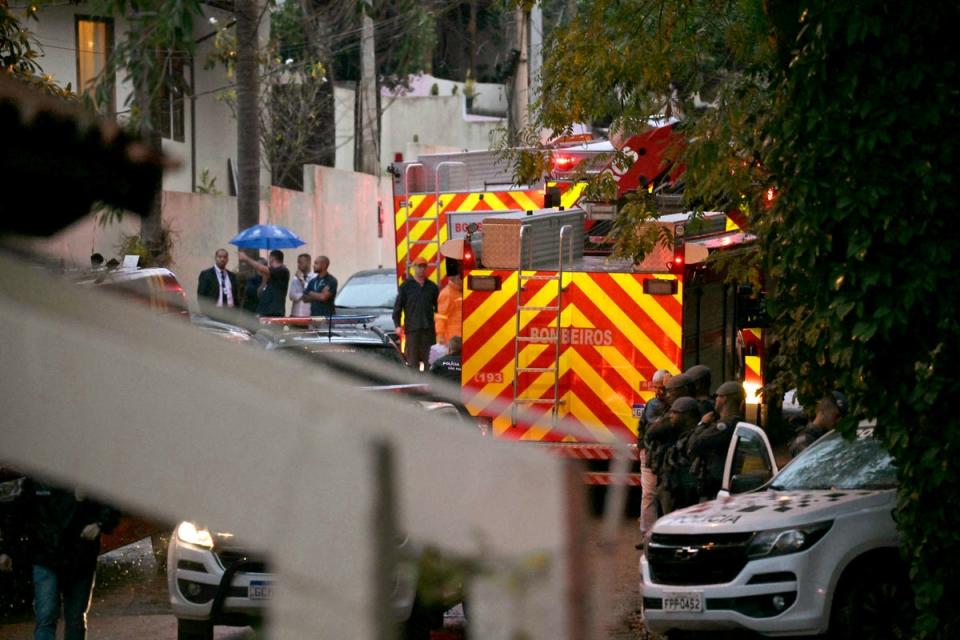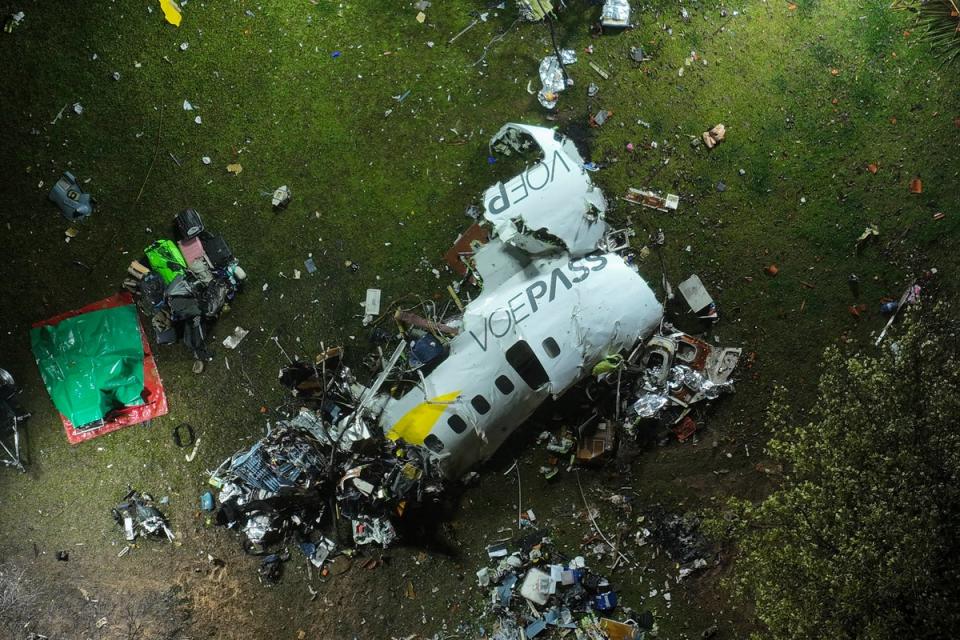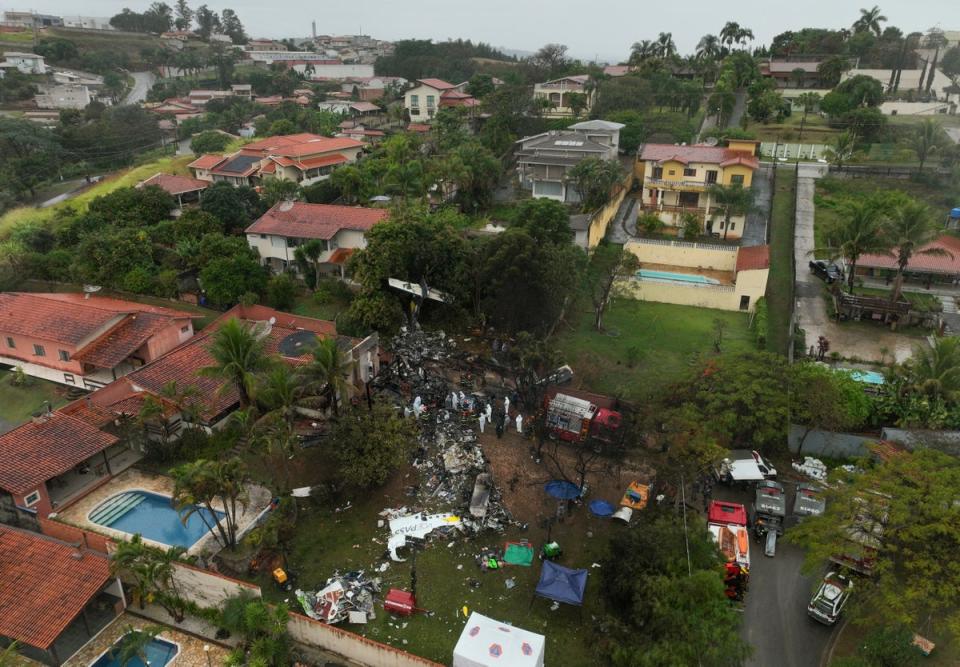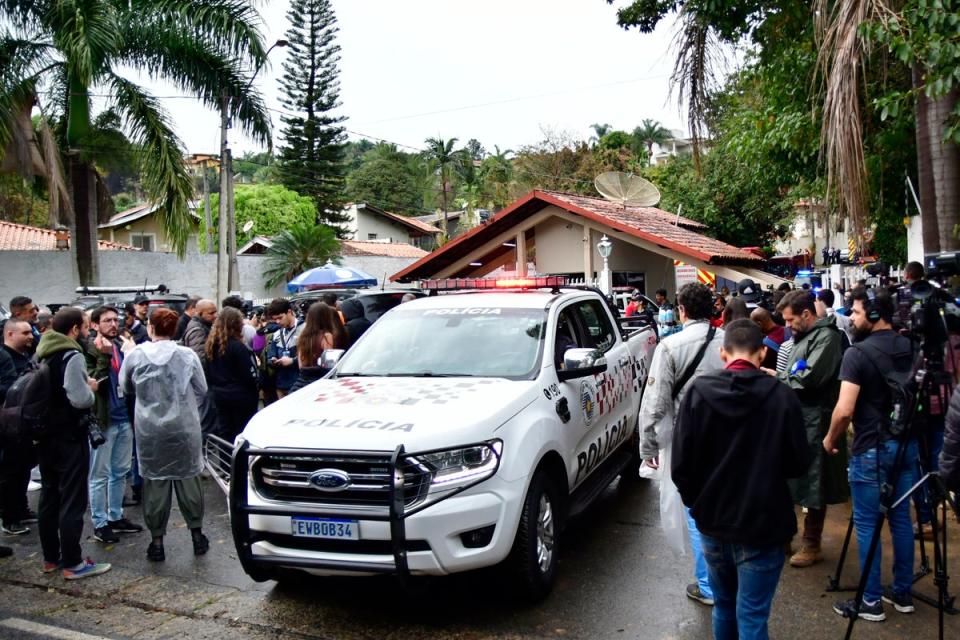What societal implications are wrought by the loss of individuals who dedicate their lives to the care of others? This question lingers in the air as news spreads regarding a tragic plane crash in Brazil that claimed the lives of eight esteemed cancer doctors, each a beacon of hope in the relentless fight against this devastating disease.
🚨Get your crypto exchange secret bonus right now.🚨
The Incident: A Flight Cut Short
The recent aviation tragedy has left the medical community in profound mourning. Eight cancer specialists were on a flight returning from a prestigious medical conference. During this gathering, held to discuss advancements in cancer treatments, they gathered knowledge and exchanged insights, only to have their lives and contributions tragically cut short.
Flight Details
The specific flight that was involved in the tragic crash was reportedly carrying a total of fifteen individuals. Here are some key details surrounding the flight:
| Detail | Information |
|---|---|
| Flight Origin | São Paulo, Brazil |
| Flight Destination | Brasília, Brazil |
| Total Passengers | 15 |
| Survivors | 7 |
| Casualties | 8 (all cancer doctors) |
The loss of these medical professionals represents not only a sorrowful event for their families and colleagues but also a significant setback in the broader medical community’s efforts to treat and ultimately eradicate cancer.
The Significance of the Conference
This ill-fated flight followed a medical conference focusing on advancements in cancer treatment. Conferences such as this serve a critical role in the dissemination of knowledge and in fostering collaboration among healthcare professionals.
Objectives of the Conference
The annual conference aimed to achieve several objectives, including:
- Presenting Latest Research: Attendees were engaged in discussions about groundbreaking studies and clinical trials aimed at improving treatment outcomes for cancer patients.
- Networking Opportunities: Events like these facilitate networking among professionals, allowing for partnerships that may lead to innovative treatment approaches.
- Workshops and Seminars: The conference offered various workshops designed to impart practical skills and insights into the latest technologies in cancer care.
Each of these objectives plays a pivotal role in the continuous improvement of cancer treatments. Thus, the loss of these doctors removes valuable minds and hearts from an urgent cause.
🚨Get your crypto exchange secret bonus right now.🚨
A Last-Minute Change
A surprising turn of events emerged when it was revealed that seven other passengers had managed to change their flight plans at the last minute. They narrowly avoided being aboard the ill-fated flight. This twist adds an additional layer of complexity to an already tragic incident.
Details of the Change
The reasons behind the sudden alteration of plans are not entirely clear, but several factors may have contributed:
- Personal Reasons: Some may have had family emergencies or other commitments that prompted the last-minute changes.
- Flight Availability: It is common at busy conferences for attendees to shift their travel plans based on availability or convenience.
- Intuition or Precaution: In some cases, instincts about flight arrangements may drive individuals to consider alternate transportation options.
This mere coincidence of timing underscores the unpredictable nature of life and travel.
The Aftermath: Shockwaves in the Community
The ramifications of this incident extend far beyond immediate grief. The medical community is understandably shaken. Losing professionals committed to battling cancer is a tragic blow to an area that requires steadfast dedication and innovative thinking.
Community Response
The response from the wider healthcare community has been swift. Many organizations have expressed their condolences and have begun discussions on how to honor the legacy of the doctors lost.
Statements from Organizations
- American Society of Clinical Oncology (ASCO): Released a statement highlighting the tragic impact of the incident on cancer care advancements.
- International Oncology Community: This group emphasized the importance of collaboration and the personal impact that each of the victims has had on patients worldwide.
In the face of loss, the community is coming together to honor these professionals and their work.
Investigations and Safety Concerns
As the dust begins to settle after this tragedy, investigations are underway to determine the cause of the crash. Authorities are taking this matter with utmost seriousness, given the potential implications with regard to aviation safety, particularly for medical professionals involved in urgent healthcare pursuits.
Initial Findings
While it is still early in the investigation process, certain initial findings have emerged that warrant attention:
- Aircraft Type: The specific aircraft involved has raised questions about its maintenance history and regulatory compliance.
- Weather Conditions: Reports regarding the weather at the time of the crash have sparked discussions on whether external factors contributed to the incident.
- Pilot Experience: Investigators are scrutinizing the qualifications and experience level of the flight crew, seeking to understand if human factors played a role.
The aviation industry continually faces scrutiny regarding safety, and incidents like this only exacerbate concerns. Medical professionals who travel frequently for lectures, conferences, and consultations may find themselves considering these issues more seriously.
The Role of Air Travel in Modern Medicine
Air travel is a critical component of modern medical practice. Many healthcare professionals often traverse significant distances to gather knowledge and share insights, making safety paramount.
Benefits of Air Travel for Medical Professionals
Despite inherent risks, air travel facilitates the following:
- Access to Knowledge: Professionals can attend key conferences, gaining crucial insights needed to tackle complex medical issues.
- Collaboration Opportunities: Travel allows for connecting with peers and forming alliances that often result in innovative treatment protocols.
- Expedited Patient Care: For emergent cases, face-to-face consultations can lead to quicker diagnoses and treatment plans.
In recognizing these benefits, the aviation community must reinforce safety protocols to protect the individuals committed to patient care.
Understanding the Impact of Such Losses
The loss of respected professionals in any field can have lasting effects, particularly in specialized areas such as oncology where the stakes are life and death.
The Ripple Effect in Oncology
The death of these eight cancer doctors reverberates through multiple layers of the healthcare tapestry:
- Patient Care: Each doctor had patients who relied on their expertise, and their absence leaves a void that could hinder treatment progress.
- Ongoing Research: Each researcher contributed unique insights to ongoing studies, and their loss may delay breakthroughs in critical areas of cancer treatment.
- Community Support: The impact on support networks, including families and colleagues, emphasizes the personal tragedy of each lost life.
The fallout from this event will extend beyond the immediate sorrow felt by families, friends, and colleagues.
Towards a Safer Future in Aviation
The aviation industry must respond proactively to this tragedy, addressing the underlying issues that contribute to such incidents.
Recommendations for Safe Travel
In response to the growing concerns regarding air travel safety for medical professionals, several recommendations have surfaced:
- Mandatory Flight Checks: Stricter regulations on aircraft maintenance and routine checks tailored specifically for flights carrying medical personnel.
- Collaboration with Aviation Authorities: Direct channels between healthcare organizations and aviation bodies to ensure better safety standards.
- Risk Awareness Training: Training programs for medical professionals traveling frequently, educating them on recognizing potential risks and making informed travel decisions.
Emphasizing these strategies may aid in preventing future tragedies, ensuring a safer environment for those dedicated to saving lives.
Conclusion: A Call to Action
The untimely deaths of eight cancer doctors in Brazil serve as a stark reminder of life’s fragility and the immense loss incurred when dedicated professionals are taken too soon. The investigation into the crash’s cause is essential, but it should also catalyze broader discussions on ensuring the safety of those undertaking air travel for the noble purpose of enhancing human health.
As the global community reflects on this tragedy, it must also recognize the critical importance of support systems for medical professionals, promote preventive measures in aviation, and foster collaborative efforts that transform this loss into a pathway for progress. The endeavor to eradicate cancer continues, and each of those lost individuals will be remembered for their commitment to this ultimate mission.
🚨Get your crypto exchange secret bonus right now.🚨
Discover more from Stockcoin.net
Subscribe to get the latest posts sent to your email.



